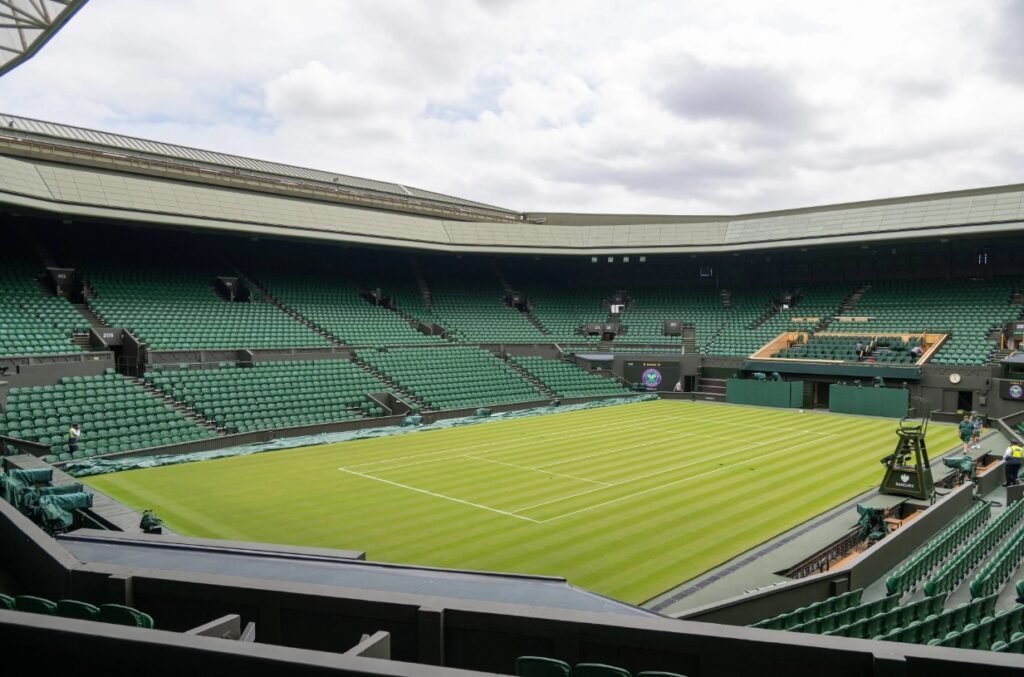Wimbledon is taking a significant step into the future by replacing its traditional line judges with advanced electronic line-calling technology. This move marks the oldest Grand Slam tennis tournament’s embrace of modern officiating methods. Starting in 2025, the All England Club aims to enhance accuracy and streamline match officiating, aligning Wimbledon with other major tournaments.
Technological Transformation at Wimbledon
Wimbledon’s decision to adopt electronic line-calling comes after extensive testing during the 2024 tournament. The All England Club has been utilizing ball-tracking and line-calling technology for years, but the full transition signifies a major shift.
“We consider the technology to be sufficiently robust and the time is right to take this important step in seeking maximum accuracy in our officiating,” said Sally Bolton, chief executive of the All England Club. This upgrade ensures that players experience the same precise conditions found at other top-tier events on the tour.

Key Changes:
- Electronic Line-Calling: Replacing human line judges with automated systems.
- Uniform Conditions: Ensuring consistency across all Grand Slam events.
- Enhanced Accuracy: Minimizing human error in calls.
These changes are expected to modernize the tournament while maintaining the high standards Wimbledon is known for.
Balancing Tradition with Innovation
Wimbledon is renowned for its rich traditions, including the elegant uniforms of its line judges, who have long been considered part of the event’s classic charm. Transitioning to technology presents a delicate balance between preserving heritage and embracing progress.
“Line umpires have played a central role in our officiating set-up at the championships for many decades,” Bolton remarked. “We recognize their valuable contribution and thank them for their commitment and service.”
Heritage Meets Modernity:
- Elegant Line Judges: Known for their distinctive attire.
- Technological Integration: Incorporating modern tools without losing Wimbledon’s essence.
- Respect for Tradition: Acknowledging the historical significance of line judges.
This thoughtful approach ensures that while the methods may change, the spirit of Wimbledon remains intact.
Impact on Officials and Operations
The removal of human line judges will inevitably affect the roles of many officials who have been part of Wimbledon’s fabric for years. However, the transition aims to enhance the overall efficiency and accuracy of match officiating.
- Streamlined Operations: Fewer officials on court, leading to a more focused environment.
- Training and Adaptation: Officials may shift to new roles or support the technological systems.
- Enhanced Focus: Chair umpires can concentrate more on in-match decisions without the need to oversee line calls.
This shift not only modernizes the officiating process but also allows officials to adapt to new responsibilities within the tournament’s framework.
Comparison with Other Grand Slams
Wimbledon’s move to electronic line-calling aligns it with the practices of the Australian Open and US Open, both of which have already implemented similar technologies. The French Open remains the only Grand Slam without full electronic line-calling, maintaining traditional line judges exclusively.
| Grand Slam Tournament | Electronic Line-Calling | Traditional Line Judges |
|---|---|---|
| Australian Open | Yes | No |
| US Open | Yes | No |
| French Open | No | Yes |
| Wimbledon | Yes (from 2025) | No |
This comparison highlights Wimbledon’s commitment to staying current with global standards in tennis officiating.
Future Implications for Players and Fans
The introduction of electronic line-calling is expected to benefit both players and fans by providing more accurate and consistent call decisions. Players can focus more on their game without the uncertainty of human error, while fans enjoy a more streamlined and modern viewing experience.
“We recognize the importance of providing our players with the best possible conditions,” Bolton added. “This change will help ensure fairness and consistency in every match.”
Benefits:
- For Players: Reduced disputes over line calls, allowing for a smoother gameplay experience.
- For Fans: Enhanced viewing experience with fewer interruptions and more accurate match outcomes.
- For the Sport: Modernizing the game while maintaining its integrity and competitive spirit.
As Wimbledon moves forward with these changes, it sets a precedent for other traditional sports events to consider similar technological integrations.
